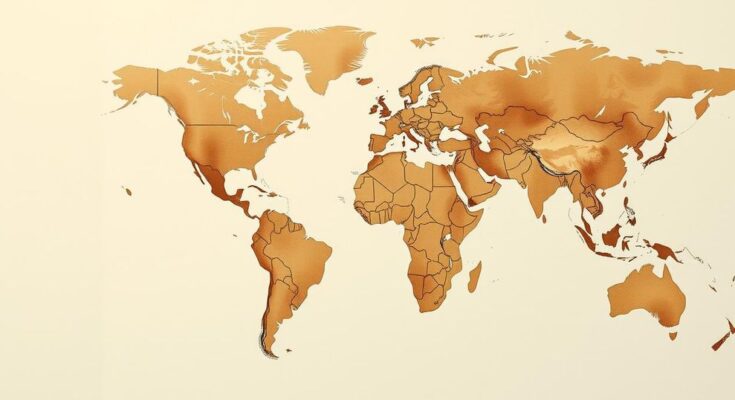Sudan’s genocide allegations against the UAE have been found lacking by legal experts. The ruling indicates insufficient evidence to support serious accusations of human rights violations. This outcome complicates Sudan’s ongoing diplomatic strategies and raises questions regarding the viability of legal actions against the UAE.
In a recent development regarding allegations of genocide, Sudan’s claim against the United Arab Emirates (UAE) has been deemed insufficient by legal experts. The accusation, highlighting grave human rights violations, has stirred considerable discussion but ultimately fell short of the required legal benchmarks. The ruling emphasizes that Sudan’s arguments lacked compelling evidence to substantiate such serious charges.
The allegations tied to the conflict in Sudan stem from years of turmoil, most notably the Darfur genocide, which has drawn international scrutiny. Analysts point out that Sudan’s current diplomatic approach, especially following a complex situation involving various factions, is increasingly critical. However, these attempts to hold the UAE accountable for alleged complicity have not yet resulted in a solid legal foundation.
UAE authorities have categorically rejected the accusations, insisting that they play a vital diplomatic role in the region. They argue that their involvement in Sudan, especially related to humanitarian efforts and development projects, has been constructive and not detrimental. This assertion has further complicated Sudan’s position, presenting a challenge for its legal representatives.
Legal scholars are particularly skeptical of the viability of Sudan’s case, noting the necessity for clear and concrete evidence in such high-stakes allegations. Without that, legal recourse may not be successfully pursued, as it requires a substantial load of proof to navigate international law effectively. Sudan’s pursuit of accountability will likely have to rely on bolstered evidence and broader support from the international community.
In essence, while the desire for justice and reparations is palpable in Sudan, the present claim against the UAE needs substantial reconstruction. This recent development serves as a pertinent reminder of the complexities surrounding issues of accountability in international law.
The recent ruling on Sudan’s genocide allegations against the UAE highlights significant gaps in evidence. As Sudan attempts to navigate its own tumultuous history and seek accountability, it faces an uphill battle without a solid legal foundation. The complexities of international law are at play here, making the pathway for future claims uncertain. Without substantial evidence and broader international support, Sudan’s pursuit of justice remains challenging.
Original Source: www.law360.com




